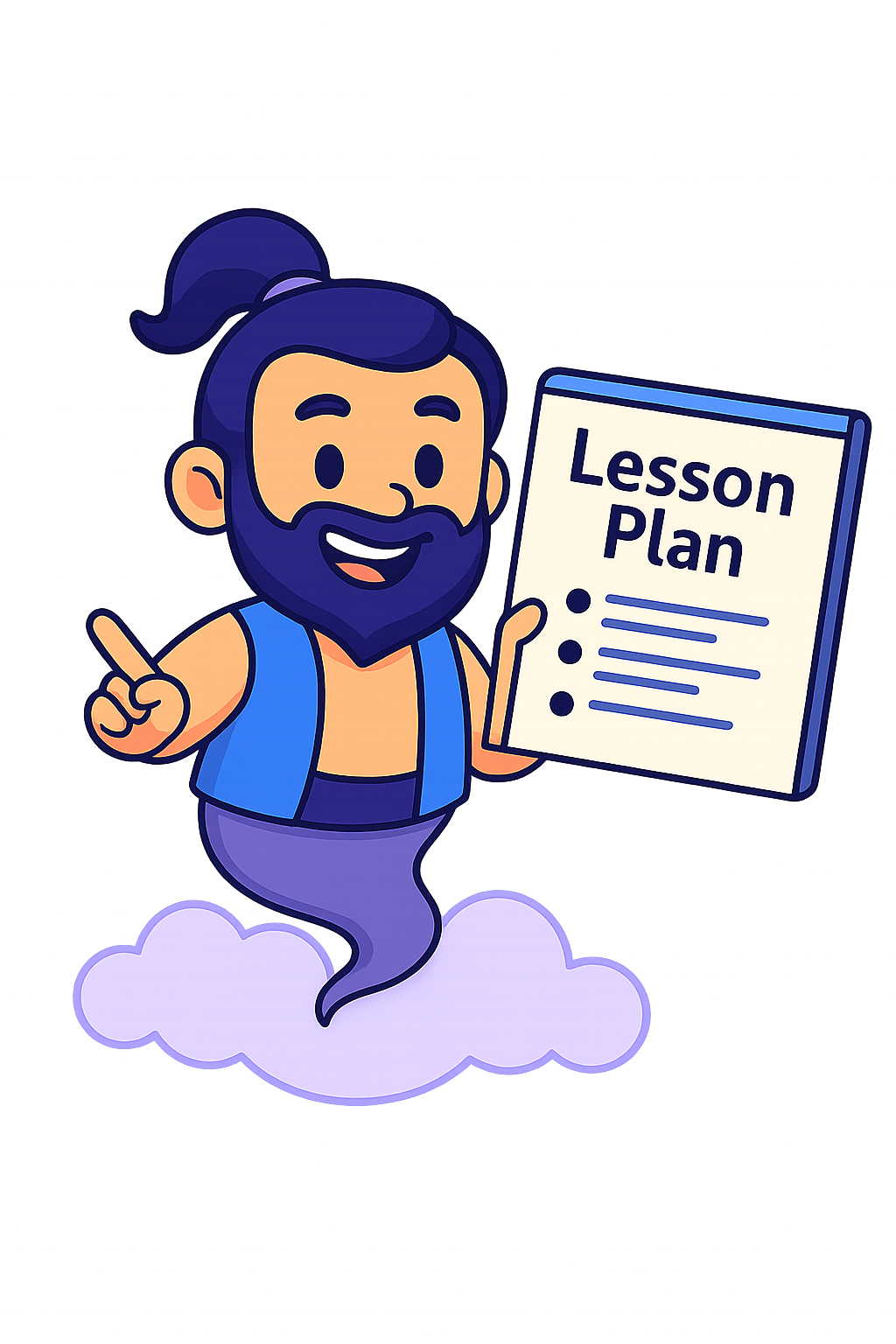 Understanding and Using Prepositions
Understanding and Using Prepositions
Objective: Students will be able to identify and use prepositions in sentences to describe the relationship between words, focusing on the standard 4.L.1f.
Learning Objectives
- Recognize prepositions and their objects in sentences.
- Use prepositions correctly to describe location, direction, or time.
- Create sentences using prepositional phrases.
Materials Needed
- Whiteboard or paper
- Markers or pencils
- Preposition flashcards
- Sample sentences worksheet
Key Vocabulary
- Preposition
- A word that shows the relationship between a noun or pronoun and other words in a sentence, often indicating direction, location, or time.
- Object of the preposition
- The noun or pronoun that follows the preposition in a sentence.
- Phrase
- A group of words that work together but do not have both a subject and a verb.
Detailed Activities
Introduction to Prepositions
- Explain what a preposition is and give examples such as ‘in,’ ‘on,’ ‘under,’ and ‘before.’
- Show sentences on the board and underline prepositions and their objects.
- Discuss how prepositions show relationships between words.
Preposition Identification Game
- Use flashcards with prepositions and read sentences aloud.
- Ask the student to identify and point out the preposition and its object in each sentence.
- Provide immediate feedback and encouragement.
Sentence Creation
- Ask the student to write 3 sentences using different prepositions learned.
- Review the sentences together, highlighting prepositional phrases.
- Discuss any mistakes and correct them together.
Parent & Instructor Notes
- Encourage your child to listen carefully when reading to notice prepositions.
- Use everyday conversations to point out prepositions, like ‘The book is on the table.’
- Be patient and provide positive feedback to build confidence.
Assessment Questions
- Can you find the preposition in this sentence: ‘The cat is under the chair’?
- What word follows the preposition in this sentence?
- Create a sentence using the preposition ‘between’.
Extension Ideas
- Read a short story and highlight all the prepositional phrases found.
- Create a drawing showing a scene with objects and describe it using prepositional phrases.
- Use prepositions in a creative writing prompt to practice more complex sentences.
Frequently Asked Questions
A prepositional phrase starts with a preposition and ends with the object of the preposition, showing a relationship between words.
Use visual aids, everyday examples, and practice games to make learning prepositions fun and memorable.
Teacher’s Guide
Common Misconceptions:
- Students may confuse prepositions with conjunctions or other parts of speech.
- Children might not recognize the object of the preposition and think only the preposition is important.
- Some may think prepositions always relate to location, missing temporal or directional uses.
Scaffolding Ideas:
For Struggling Students:
- Use more visual aids and hands-on activities to reinforce concepts.
- Provide sentence starters or fill-in-the-blank exercises.
- Focus on the most common prepositions before introducing more complex ones.
For Advanced Students:
- Challenge students to write complex sentences with multiple prepositional phrases.
- Introduce less common or compound prepositions.
- Encourage identifying prepositions in reading passages and explaining their function.
Pacing Recommendations:
- Spend 10-15 minutes introducing and explaining prepositions with examples.
- Use 15 minutes for interactive identification and practice games.
- Allow 15-20 minutes for sentence creation and review.
Standards
- 4.L.1f — Recognize and explain the function of prepositions and prepositional phrases in general and their role in a sentence.
Printable Worksheet
Plan Your Own Lesson
Looking for a custom lesson plan? Try our Lesson Planning Generator — create standards-based plans for any topic, instantly!
Common Core Aligned Lesson Plans
Looking for another common core lesson? See all of the lesson plans here.
More Free Lesson Plans
We’re adding more every week! Check back soon or explore all our lesson plans here.

 Understanding and Using Prepositions
Understanding and Using Prepositions
Leave a Reply